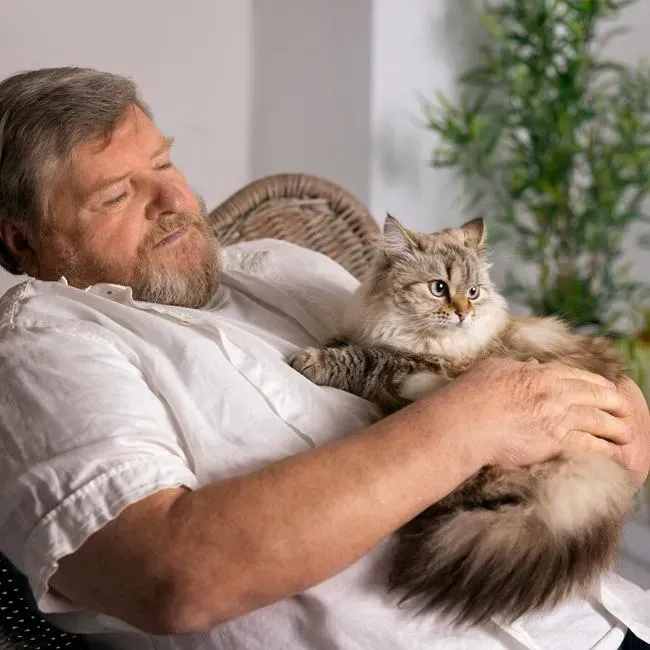Compassionate Senior Cat Care in Stockton, CA
As our beloved feline companions age, their needs change, requiring a little extra attention and care to ensure they enjoy a healthy and comfortable life. Cats are generally considered seniors at around seven years old, and with proper care, they can remain active and healthy well into their teens and even twenties. Here, we’ll guide you through essential aspects of senior cat care, including nutrition, health check-ups, exercise, and more.
Regular Veterinary Check-ups
Senior cats benefit greatly from regular veterinary visits, ideally every six months. During these check-ups, vets can detect early signs of common age-related conditions like arthritis, dental disease, kidney issues, and hyperthyroidism. Early detection allows for timely treatments and interventions, helping maintain your cat’s health.
Nutrition for Senior Cats
As cats age, their nutritional needs evolve. Senior cats may need food that is easier to digest, higher in protein, and lower in fat and calories to prevent weight gain. Speak with your vet about the best diet for your cat, as some seniors may require special formulas for kidney health, joint support, or other specific needs.
Creating a Comfortable Environment
Older cats may have reduced mobility and may need extra help accessing their favorite spots. Consider adding ramps or steps to beds and sofas, placing litter boxes on each floor, and creating cozy, warm spaces for resting. Keeping their environment consistent and familiar also helps reduce stress and anxiety in senior cats.
Encouraging Gentle Exercise
Staying active is important for senior cats, though they may not be as energetic as they once were. Gentle play with feather wands, laser pointers, or puzzle toys can keep them engaged and provide light exercise to maintain muscle tone and joint flexibility. Adapt playtime to your cat’s comfort level, and avoid overexertion.
Dental Care
Dental disease is common in senior cats, leading to pain and difficulty eating. Regular dental check-ups and cleanings are essential. Consider using cat-friendly dental products like water additives or dental chews, and consult your vet about home-care options.
Monitoring Health at Home
Be attentive to subtle changes in behavior, eating habits, or litter box use, as these can indicate underlying health issues. Watch for signs of discomfort, such as limping, vocalizing more than usual, or changes in grooming habits. Staying alert to changes can help you catch and address health issues early.
Joint and Mobility Support
Aging can bring joint stiffness or arthritis. Ask your vet about joint supplements, like glucosamine or omega-3 fatty acids, which may provide relief. Providing soft bedding, minimizing jumps, and keeping food, water, and litter boxes easily accessible are also helpful.
Mental Stimulation
Keeping your cat’s mind active is as important as physical care. Interactive toys, food puzzles, or even a window perch to watch the world outside can provide much-needed mental stimulation for senior cats, preventing boredom and cognitive decline.

Testimonial
What They Say

Was looking for a new Vet near me in Stockton and very happy with Walker Vet Hospital! Customer service, informative, and compassionate with staff and doctors. Give a 10 out of 10. Taking all three of my dogs there happily.


Rae W.

Good value and knowledgeable. No waiting most of the time. Always 2-3 doctors at a time and weekend care available which is appreciated. All of our three dogs been going to Walker Vet in Stockton for some time now. Never any complaints.


Nick G.

Review Us!
Visit our Google review page to share your feedback

Review Us!




